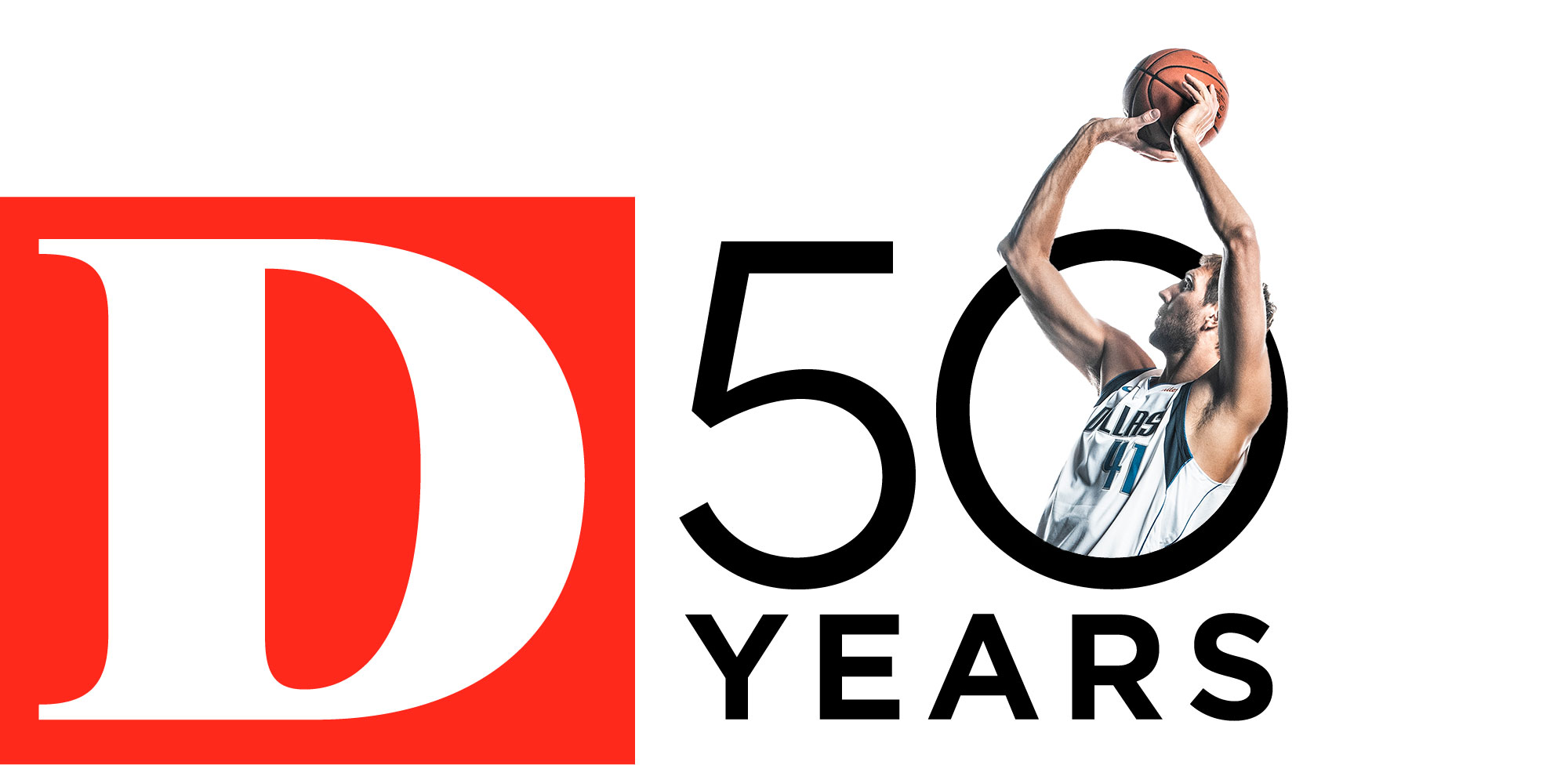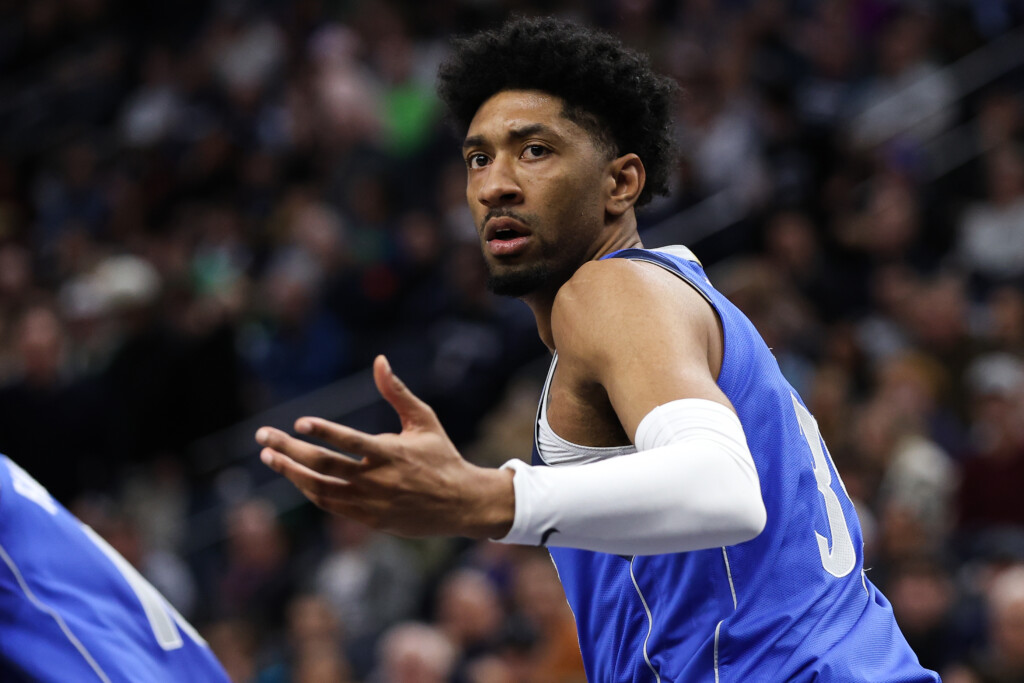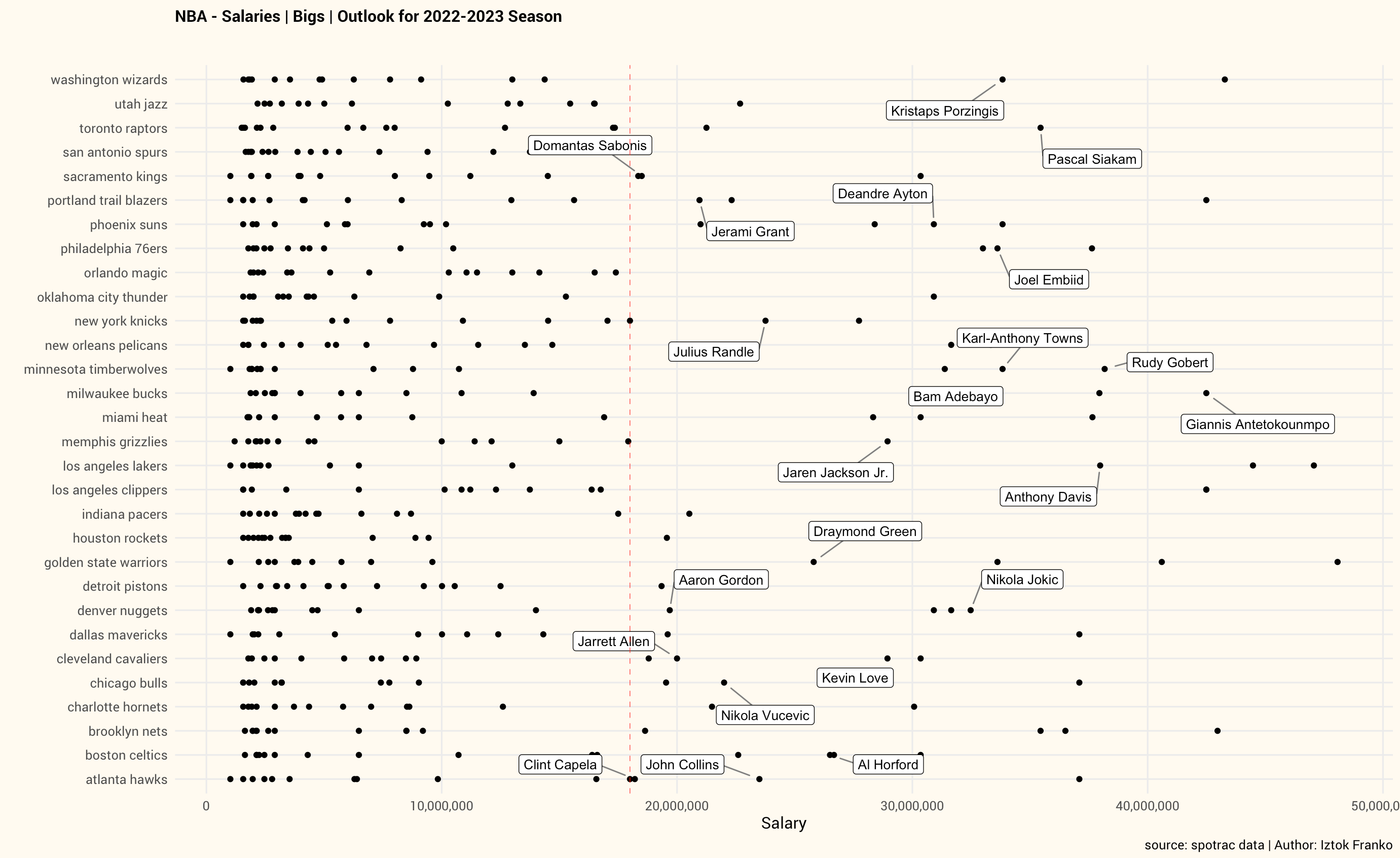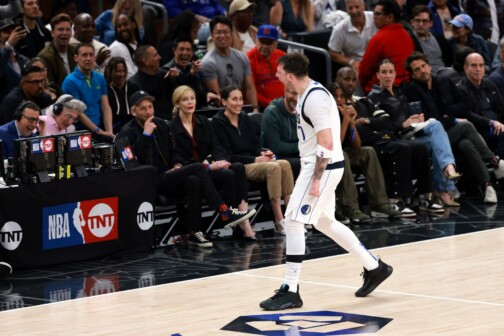It took 30 games, two injuries, and a JaVale McGee disappearing act to finally see the Mavericks’ two most talented players together in the starting lineup. But don’t get your hopes up if you’re a Christian Wood fan. Even though some of his recent box scores remind of prime Dirk Nowitzki—32 points and 12 rebounds versus the Portland Trail Blazers and 26 points and 14 boards against the Cleveland Cavaliers—there is a very good chance he’ll move back to the bench once Dwight Powell returns to the lineup. Wood’s scoring efficiency is right there on par with Zion Williamson and Anthony Davis, yet the enigmatic big man is still Dallas’ third or even fourth option on offense on some nights.
Are Jason Kidd and his staff overthinking this?
As is the case with most Mavericks-related questions these days, the answer is not as straightforward as it seems. After all, six other NBA teams have already tried to solve the Christian Wood dilemma. For the Mavericks, that challenge has several layers and long-term team-building implications, because evaluating Wood is almost impossible without considering his next contract.
But before going too deep into the question of Wood’s future in Dallas—he’ll be eligible to sign a four-year, $77 million contract extension on December 23—the Mavericks have a lot of short-term problems at hand. They currently sit in 10th place in the Western Conference, on the brink of falling out of the play-in spots. Three weeks ago, in my review at the quarter mark of the season, I wrote that I expected more finetuning on the margins. I also made the disclaimer that if the Mavericks are still stuck in neutral at Christmas, it will be time for a more radical stylistic change. Well, Christmas is here, and the Mavericks just dropped below .500 after their latest disappointing loss, to Minnesota, which featured ejections for both Kidd and Luka Doncic. More importantly they’re running out of options—and out of bodies on their injury-ravaged roster.
With McGee unplayable and Maxi Kleber out indefinitely (and probably for the season) after undergoing surgery for a right hamstring tear, Kidd is down to two functional front-court options. One of them is Powell, who sat out the last two games because of left thigh contusion and is averaging less than 17 minutes per game. The other is Wood. This means that a coaching staff that prides itself on building a defense-first culture must rely on the all-offense lineups featuring Wood as the only big man much sooner than they planned to and, based on what we saw at the beginning of the season, way more than they ever wanted. Barring the front office finding upgrades elsewhere, the “we’ll outscore you” strategy might be the only way for Mavericks to survive the next couple of months.
It’s not like that this approach can’t work and be a lot of fun, at least in the regular season. On nights when things click, like the aforementioned game against the Trail Blazers, an additional efficient second option next to Doncic is a nightmare for any NBA defense. And “efficient” undersells what Wood brings to the table: among the top 30 players in scoring per 36 minutes, he trails only Nikola Jokic, Steph Curry, Zion Williamson, and Lauri Markkanen in effective field goal percentage. He can score in bunches, and there are nights when he looks like one of the most versatile big men in the NBA. We’ve seen that in spurts when the Mavericks decide to run the offense through him, mostly at the beginning of fourth quarters when Doncic takes his scheduled breather. When paired with Doncic, Wood is the pick-and-roll partner fans envisioned Kristaps Porzingis could be: willing to attack the rim on the roll, an accurate three-point threat on the pop, and more than capable of punishing smaller defenders after a switch in the post. Dallas scores 122.1 points per 100 possessions with Wood and Doncic on the floor at the same time, which ranks in 97th percentile among all NBA lineups with at least 100 possessions played. Numbers like these make it hard for some Mavericks fans to understand why several injuries had to happen to see Kidd finally unleash Wood as a 30-minute-per-game starter.
Wood’s defense is what makes the coaching reluctant to fully commit to him. His lack of lateral quickness means he’s often late on rotations or at contesting shots in the paint, while Wood himself has acknowledged that minimizing his defensive lapses is the key for him to build trust with the coaching staff. (Some of the growing pains that come with more responsibility and more decision-making have bled into other aspects of Wood’s game, too: both his turnover rate and foul rate are at career-high levels.)
He’s just not the defensive anchor this team needs to replicate the formula that took this team to the Western Conference Finals. The Mavericks tried to cover for Wood’s limitations and reduce the responsibility by playing him next to Kleber as much as possible, but the German’s absence means Wood’s protector is gone. Asking Wood to participate on defense is one thing. Asking him to be its backbone is quite another. And so far, that’s gone as badly as the Mavericks could have feared. With injuries piling up and Wood playing mostly at center, the Mavericks’ defense has fallen off a cliff, ranking 26th over their last seven games.
Defensive fit is also where the question of Wood’s long-term future gets really difficult. If Dallas does offer Wood a contract extension and he accepts it, he’ll be in the $18 to $19 million per year range, a threshold that 72 players have reached in the NBA. By my analysis of Spotrac salary data only 22 of them are big men.
That’s not too surprising, as guards and wing players dominate the current NBA landscape. On the chart above, you see names like Clint Capela, Aaron Gordon, and Domantas Sabonis in that $18 to $19 million salary range. All are more well-rounded players than Wood is.
If Dallas doesn’t offer the extension to Wood, they still would retain his Bird Rights going into free agency. But retaining him then could cost upward of $20 million annually, and that’s when things might get problematic. Anything beyond that number for a big who is either not an MVP-caliber player (like Giannis Antetokounmpo, Nikola Jokic, or Joel Embiid), or a defensive anchor (like Rudy Gobert, Jaren Jackson Jr., Draymond Green, Bam Adebayo, or Anthony Davis) is probably not a smart team-building strategy. High-scoring power forwards who don’t defend at an above average rate or can create shots for others are one the NBA biggest market inefficiencies at the moment. (Think Julius Randle and John Collins.) Don’t take my word for it; after all, the Mavericks learned that lesson the hard way with Porzingis. And as efficient as Wood has been this season, the offense is still a mess when he’s not sharing the floor with Doncic, plummeting to 107.9 points per 100 possessions. (For comparison, the Charlotte Hornets are the NBA’s worst offense at 108.6.)
So the Mavericks have a dilemma on their hands. Even if they offer the extension, there’s no guarantee Wood would take it. Based on the things we’ve seen so far, it’s not far-fetched to think there is a gap between how both sides perceive Wood’s value. Signals from Wood and his camp point to the fact they think of him as a full-time starter, if not a borderline All-Star. The Mavericks’ handling of him so far, on the other hand, makes me believe they see him as a scoring spark, one that can change the tone of the game off the bench but is better suited by playing behind another defensive anchor. A supercharged version of Bobby Portis playing behind Brook Lopez in Milwaukee.
One problem for Dallas is that they don’t have Lopez. Their closest facsimile just suffered a severe injury. And while the pressure is on for the Mavericks to find their version of the Jrue Holiday trade, the fact that their Khris Middleton left for New York in the summer makes the situation even more difficult. The latter was a big blow, and now the Mavericks are staring at a similar predicament they faced with Jalen Brunson last year. The Mavericks needed Brunson to step up as a clear second option when things looked bleak during last December’s COVID outbreak and later in April when Doncic missed the first three games of the playoffs. Their chances of turning around this season hinge on Wood proving he can be as reliable as Brunson was once he moved to the starting lineup. The hope is that lineups with Doncic and Wood continue to flourish on offense with extended playing time, even against opposing starting units. But even if that does happen, Kidd and Sean Sweeney must be creative enough to build sufficient protections around both so things don’t fall apart on defense. We’ll see if the Mavericks explore surrounding Doncic and Wood with their best wing correctors—Dorian Finney-Smith, Josh Green, and Reggie Bullock—once they’re all available again.
And if they succeed and salvage this season, Dallas’ reward will be the same challenge they faced with Brunson going into free agency. Wood would be a player that they didn’t fully buy into and commit to from the start, and might have played out the price range they are willing to pay by the time they did. Nico Harrison and Co. need to be way more proactive this time around, which means considering the possibility of a trade if the right deal comes along. The Mavericks can’t afford to lose Wood for nothing.
What can they afford to do when he’s on the court? That’s a much larger question. And the answer will shape the rest of Dallas’ season.
Get the ItList Newsletter
Author







